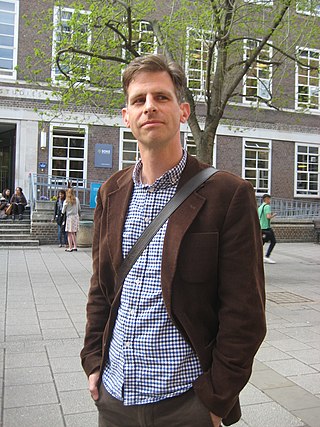
Dharma is a key concept with multiple meanings in the Indian religions, among others. Although no single-word translation exists for dharma in English, the term is commonly understood as referring to behaviours that are in harmony with the "order and custom" that sustain life; "virtue", or "religious and moral duties".
Indology, also known as South Asian studies, is the academic study of the history and cultures, languages, and literature of the Indian subcontinent, and as such is a subset of Asian studies.
K. Aslıhan Yener, often anglicised as K. Aslihan Yener, is a Turkish American archaeologist whose work on Bronze Age tin mines in Anatolia revealed a new possible source of the important metal.
Ruth Vanita is an Indian academic, activist and author who specialises in British and Indian literary history with a focus on gender and sexuality studies. She also teaches and writes on Hindu philosophy.
Malati J. Shendge (1934–2015) was an Indologist. She received her Ph.D in Buddhism from the University of Delhi. She had been a fellow of the Indian Council of Historical Research, and of the Indian Institute of Advanced Study, Shimla. She was a faculty member at Jawaharlal Nehru University, and Founder Director (Hon.) of the Rang Datta Wadekar Centre for the study of Indian Tradition, Pune.
Merritt Conrad Hyers (1933–2013) was an American historian of religion and ordained Presbyterian minister. He taught for many years at Gustavus Adolphus College, and wrote multiple books on humor in religion and on Zen Buddhism.
Johann Gildemeister was a German Orientalist born in Kröpelin.
Andrew J. Newman holds the chair of Islamic Studies and Persian at the University of Edinburgh.
Matthew T. Kapstein is a scholar of Tibetan religions, Buddhism, and the cultural effects of the Chinese occupation of Tibet. He is Numata Visiting Professor of Buddhist Studies at the University of Chicago Divinity School, and Director of Tibetan Studies at the École pratique des hautes études.

Gurinder Singh Mann is a Punjabi-American scholar and professor of Sikh studies, and the author of multiple books on Sikh religion and society. Mann taught religion at Columbia University from 1988 to 1999 and then held the Kundan Kaur Kapany Chair in Sikh Studies from 1999 to 2015 at the University of California, Santa Barbara. He retired from Santa Barbara in 2015, and founded the Global Institute for Sikh Studies in New York City, which he presently directs.
Lin Nu was a Chinese merchant and scholar in the early Ming dynasty. He is the ancestor of the late Ming philosopher Li Zhi. His family was Han Chinese in origin and the branch that remained true to Han culture cut off the Lin Nu's branch for marrying a foreigner and converting to another religion.

Sam Julius van Schaik is an English tibetologist.

Renate A. Tobies is a German mathematician and historian of mathematics known for her biographies of Felix Klein and Iris Runge.
Leopold Wenger was a prominent Austrian historian of ancient law. He fostered interdisciplinary study of the ancient world.
Monica Louise Smith is an American archaeologist, anthropologist, and historian of ancient cities and their household activities. She is Professor and Navin and Pratima Doshi Chair in Indian Studies in the Department of Anthropology at the University of California, Los Angeles.
Sonja Brentjes is a German historian of science, historian of mathematics, and historian of cartography known for her work on mapmapking and mathematics in medieval Islam.
Hélène Bellosta-Baylet was a French historian of mathematics specializing in mathematics in medieval Islam.
George E. Lane is a British historian and author.
Heinz Bechert was a German Indologist and Buddhologist.
Robert Dankoff is Professor Emeritus of Ottoman & Turkish Studies, Department of Near Eastern Languages and Civilizations at University of Chicago.



